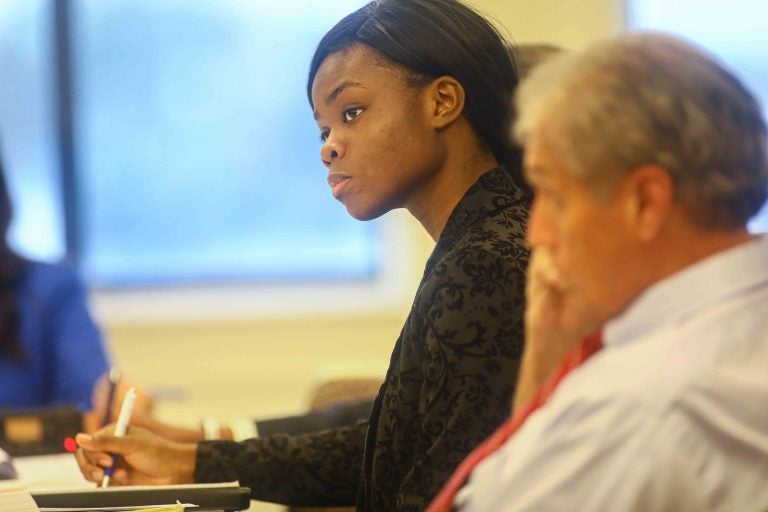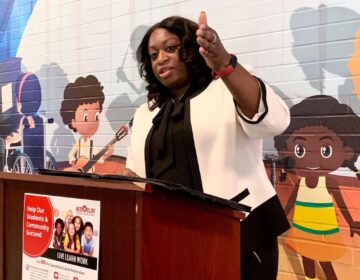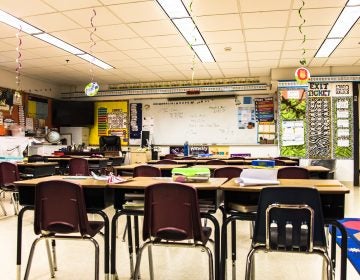For the first time, students get voice on Delaware Board of Education
Lawmakers passed a bill in 2018 that added a student and a teacher to the state board in non-voting roles. The student must be in 11th or 12th grade.

Dorcas Olatunji, 17, after a Delaware State Board of Education meeting on Thursday, Sept. 19, 2019, at the Community Education Building in Wilmington, Del. (Saquan Stimpson for WHYY)
Dorcas Olatunji got a good taste of the drudgery that sometimes goes along with bureaucracy in state government during her first meeting as a member of the Delaware Board of Education.
“My first board meeting was actually five hours long,” Olatunji said.
The Charter School of Wilmington senior was thrilled to be selected out of 40 applicants vying to be the first student on the state board. “I was overjoyed to have gotten the news that I was selected to the board. ‘Do you accept the offer?’ Of course I accept the offer,” she said.
Other states, including New Jersey and Pennsylvania, have included students on their state education boards. Delaware lawmakers passed a bill in 2018 that added both a student and a teacher to the school board in non-voting roles. The student must be in 11th or 12th grade, while the teacher must be a former state Teacher of the Year who is still teaching in Delaware.
Serving on the board along with Olatunji is 2014 Teacher of the Year Lea Wainwright.
“Educators and Delaware students should always have a seat at the table when we make big decisions that affect schools in our state,” Gov. John Carney said. “Lea and Dorcas will bring valuable experience and perspective to the board.”
Having a student on the board is important because they have a very different perspective than lawmakers, administrators or teachers, Olatunji said. She’s attended both public and private schools in Delaware and now is a student at the state’s fourth-largest charter school. “One of the key experts on education is the students themselves because they’re in the system that has been created and been the same for years, they’re in the current system, so they know the most about what’s going right, what’s going wrong.”
Jenna Ahner, executive director of the state board, said Olatunji has brought up questions that other board members might not have thought of because of her experience as a student in today’s classroom. “I think that has been one of the greater opportunities is just to bring that greater perspective to the topics that they talk about on a monthly basis.”
Olatunji doesn’t want to be the lone student voice that gets heard. She’s working to gather student government leaders as part of a statewide student congress.
“I want my time to be a call to action and a call to agency, of having a student voice and actually using it to shape Delaware education,” she said. “I want to create something in some form that gives students a platform.”
Her term ends in June 2020, when another student will take her place.
“I get to pave the way for the student representative, and it’s so exciting,” she said. While not entirely sure where she’ll go after graduation, Olatunji plans to continue advocating for students to be heard.
“I feel like students should be encouraged more to be looking for that experiential learning and more of seeking for the things they don’t think they can achieve, like being on the Board of Education.”
WHYY is your source for fact-based, in-depth journalism and information. As a nonprofit organization, we rely on financial support from readers like you. Please give today.





